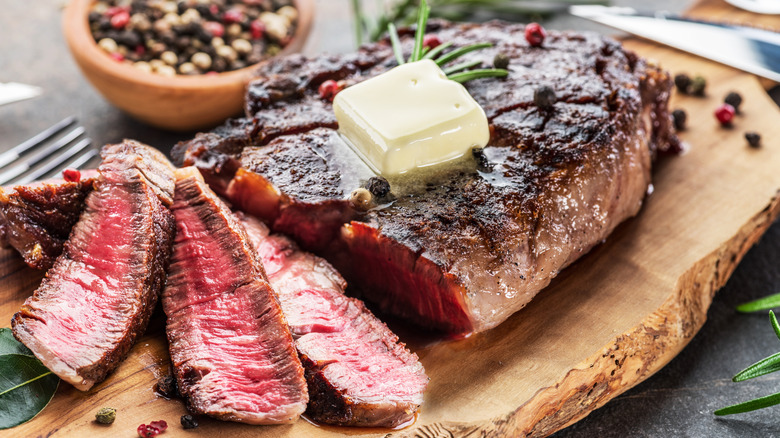Organic Vs Certified Beef: What's The Difference?
Should we be buying free-range or grass-fed beef? And which is better anyway, USDA prime or choice-grade beef? These are just two of the hundreds of questions that pop into our minds while perusing the protein section at the store. There are just so many labels on these packages — and they could mean all kinds of different things.
Some of these terms are based on government-regulated standards, but others are just confusing marketing devices. So, how do we avoid the mistakes everyone makes with ground beef, ribeyes, and filet mignon? By unpacking what each of the labels on meat packages means. For starters, let's tackle one of the biggest distinctions of all. Organic versus certified beef: What's the difference?
It's important to note that the word "certified" cannot stand alone. Instead, it is a term used to legitimize USDA standards such as a beef's class, or a grade like prime, choice, or organic. In short, the certified label gives you peace of mind that the meat you're buying meets concrete regulations. If you see this word, it means that the beef was inspected and cleared by the USDA, or another verified organization. Beef sold without this label might not have abided by the same high standards as certified beef. In the U.S., all commercially sold beef is checked for safe consumption and proper designation by the USDA Food Safety and Inspection Service.
So what's the story with organic beef?
Certified organic beef comes from cattle that are raised with high standards for animal welfare. The cattle must have year-round access to outdoor spaces, and never receive growth hormones or genetically modified feed. Farmers must also carefully document each step of the animal's life, its health, and its living spaces, while passing detailed inspections that cover feed, crops, and water systems, among other regulations. Even the grass must be organic.
So, if you see beef that says "certified organic," it is a truly organic offering. But if the label appears without the word "certified," you might be left to wonder what organic actually means. Beef sold solely with the term "organic" might be nothing more than a marketing ploy. Even food stamped USDA Organic is only required to contain up to 95% organic material.
If you don't see a certified label on a package of organic beef, you might want to do some more research to know what kind of meat you're buying. Whether you want beef from certified humanely-raised cattle, or a cut that's truly organic, making sure it's certified is the key to buying the best possible beef every time. And, if you're curious, the same certified humane labeling applies to eggs, too.

